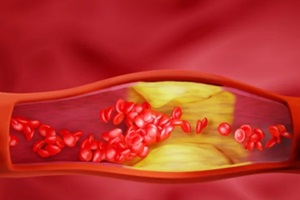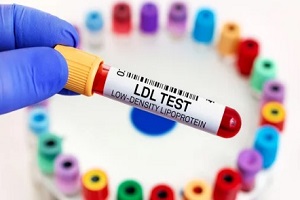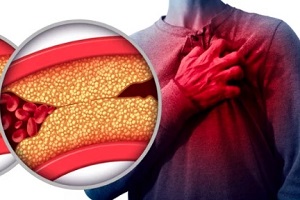 If you have high LDL (low-density lipoprotein) cholesterol, also known as “bad” cholesterol, it means you have too much of this waxy substance circulating in your blood. High LDL cholesterol levels accelerate the buildup of arterial plaque, raising your heart disease and stroke risk.
If you have high LDL (low-density lipoprotein) cholesterol, also known as “bad” cholesterol, it means you have too much of this waxy substance circulating in your blood. High LDL cholesterol levels accelerate the buildup of arterial plaque, raising your heart disease and stroke risk.
However, several effective medical treatments can help lower your LDL cholesterol and bring it into a healthier range.
What Triggers High LDL Cholesterol?
Many factors influence LDL cholesterol levels. Age, family history, diet, weight, physical activity levels, and genetics all have a role to play. Furthermore, particular health issues such as diabetes and hypothyroidism can push LDL numbers upward. Medications can also unintentionally increase LDL cholesterol as a side effect.
Recognizing the Health Dangers
Too much LDL cholesterol in your blood causes fatty deposits called plaque to accumulate along artery walls. This buildup hardens and narrows the arteries, compromising blood flow. Eventually, plaques can rupture, forming blood clots that block arteries feeding the heart or brain. Such blockages trigger heart attacks and strokes.
Studies consistently show that lowering elevated LDL cholesterol reduces plaque formation in arteries and lowers the risk for cardiovascular disease outcomes such as heart attacks. That’s why controlling high LDL is essential for protecting your health.
Improving Your Situation With Lifestyle Changes
The first measure of protection against high cholesterol focuses on heart-healthy lifestyle adjustments. Even before considering medications, your doctor will likely advise:
- Following an LDL-lowering diet – Reduce consumption of trans fats, saturated fats, and dietary cholesterol. Load up on fiber-rich fruits, vegetables, whole grains, beans, seeds, nuts, and vegetable oils such as olive and canola oil. Lean meats such as chicken or fish are better choices than fatty red meats.
- Exercising regularly – Aim for half an hour to an hour per day of moderate physical activity, such as walking briskly. Regular exercise helps boost HDL (good) cholesterol while lowering LDL and triglycerides.
- Reaching or maintaining a healthy body weight – Excess weight fuels unhealthy cholesterol changes. Shedding 5-10% of your body weight can significantly lower LDL cholesterol.
- Avoiding smoking and vaping – Tobacco smoke damages artery walls, accelerating atherosclerotic plaque formation. Both smoking and vaping adversely impact cholesterol balance.
Medications That Lower LDL Cholesterol
Medications become necessary when lifestyle measures alone fail to reduce stubbornly high LDL cholesterol. Often, they are prescribed along with diet and exercise recommendations.
Statins: First Medication Option
 Statins lower LDL levels by blocking an enzyme required to produce cholesterol in the liver. This forces the liver to pull more LDL cholesterol out of circulation. Statins such as atorvastatin, marketed as Lipitor, and rosuvastatin, marketed as Crestor, often successfully lower LDL cholesterol by 50% or more.
Statins lower LDL levels by blocking an enzyme required to produce cholesterol in the liver. This forces the liver to pull more LDL cholesterol out of circulation. Statins such as atorvastatin, marketed as Lipitor, and rosuvastatin, marketed as Crestor, often successfully lower LDL cholesterol by 50% or more.
Statins come as inexpensive generic tablets taken once daily. They are safe and work well for most people. However, side effects such as muscle aches occasionally occur. Switching statins or adjusting the dosage often alleviates this issue.
Ezetimibe (Zetia): Second Medication Consideration
If adding the maximum tolerated statin dose fails to reduce your LDL adequately, the next medication option is ezetimibe (Zetia). Ezetimibe lowers cholesterol absorption in the intestines by blocking an essential protein involved.
Typically, ezetimibe is prescribed along with a statin. This combo leads to an extra 20% drop in LDL cholesterol numbers beyond what the statin achieves alone.
Ezetimibe is relatively affordable and comes in easy-to-take tablet form. It rarely causes side effects.
PCSK9 Inhibitors: Highly Potent LDL Lowering
Two injectable PCSK9 inhibitor medications offer powerful LDL cholesterol reduction for those unable to reach targets with statin-ezetimibe combinations:
- Alirocumab (Praluent)
- Evolocumab (Repatha)
This class of drugs acts by increasing LDL receptors in the liver. More receptors speed the removal of LDL particles from the blood, leading to impressive LDL drops of 50% or greater.
However, PCSK9 inhibitors come with a high price tag and often aren’t covered by medical insurance. Side effects such as injection site reactions, symptoms similar to the flu, or back pain occasionally occur.
Three Newer, Non-Statin Therapies
Pharmaceutical companies continue researching and developing innovative ways to lower LDL cholesterol. Three promising new non-statin oral medications recently gained FDA approval:
Bempedoic Acid (Nexletol)
This daily medication lowers LDL similarly to statins but through a slightly different mechanism of action. Bempedoic acid reduces cholesterol production in the liver. Early research reveals LDL drops around 20-25%.
Evinacumab (Evkeeza)
Evinacumab mimics people who genetically lack a protein used to process cholesterol called ANGPTL3. People born without ANGPTL3 have extremely low heart-protective LDL and triglyceride levels. Monthly intravenous infusions of evinacumab recreate this unique biochemical profile, slashing LDL by up to 50%.
However, the use of this expensive drug is currently limited to people with an inherited high cholesterol condition called familial hypercholesterolemia (FH).
Inclirisan (Leqvio)
Given as a shot twice yearly, inclirisan lowers LDL cholesterol by about 50% by inhibiting the production of PCSK9 – the same protein target of Praluent and Repatha. While this medication excels at lowering LDL cholesterol based on clinical trials, more research is needed to confirm whether it directly reduces cardiovascular disease risk.
Get Stubbornly High LDL Cholesterol Under Control with Imperial Center Family Medicine
 Controlling stubbornly high LDL cholesterol often requires an individualized combination approach blending therapeutic lifestyle changes and advanced medications. Work directly with your healthcare provider to find the right plan for you.
Controlling stubbornly high LDL cholesterol often requires an individualized combination approach blending therapeutic lifestyle changes and advanced medications. Work directly with your healthcare provider to find the right plan for you.
They can help determine an optimal LDL target based on your personal risk factors and advise which treatment options may work best for your situation.
Remember that new treatments continue emerging, so revisit your LDL lowering regimen yearly to see if better therapies or drug combinations have become available. With a consistent commitment to heart-healthy living and expert medical care, you can effectively minimize the health dangers of high LDL cholesterol.
Imperial Center Family Medicine’s caring medical team is current on the latest ways to safely lower elevated LDL cholesterol. Contact us today at 919-873-4437 or online to schedule a lipid panel and comprehensive cholesterol consultation.
